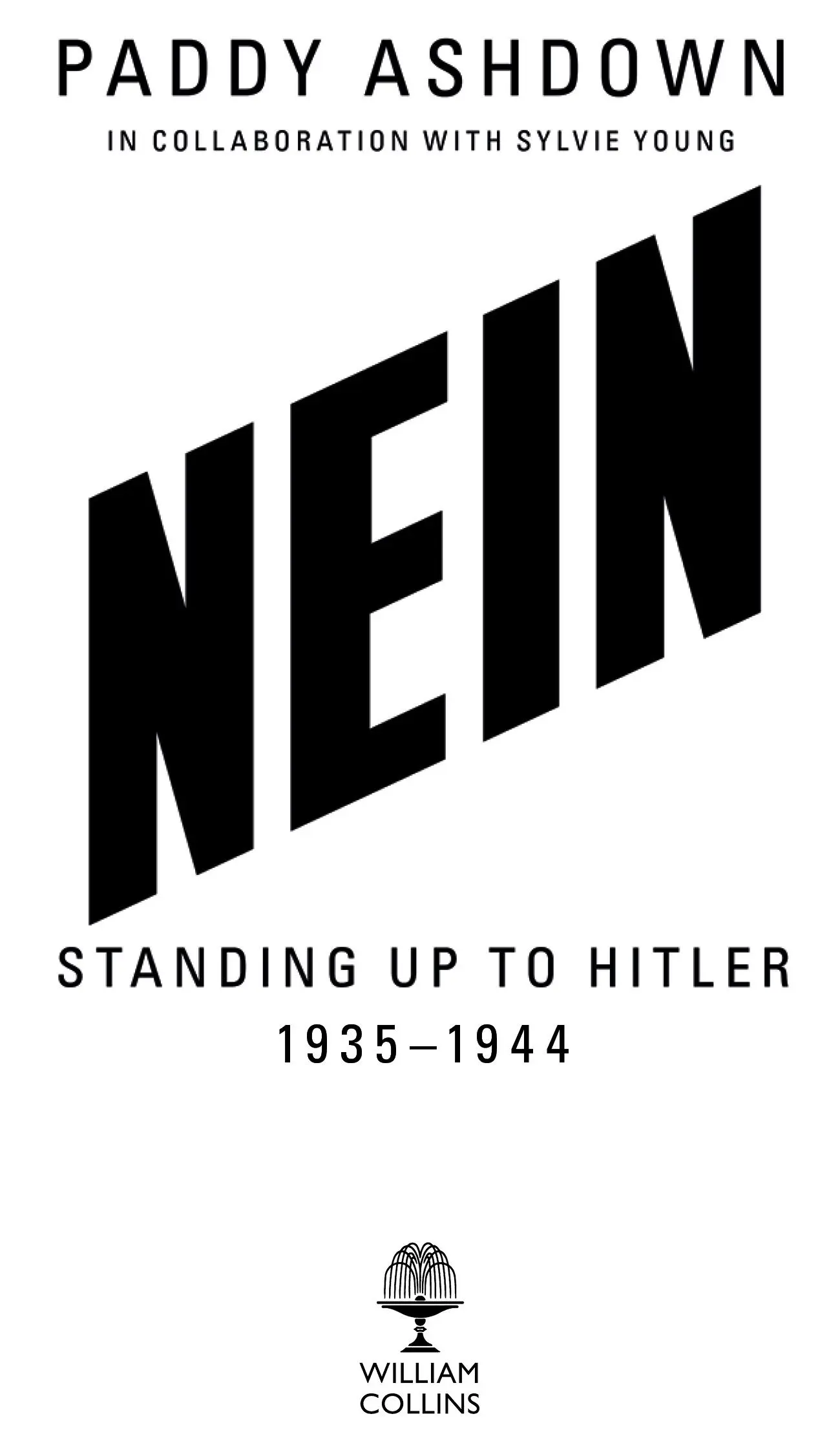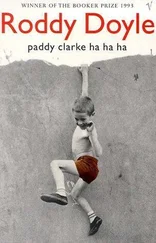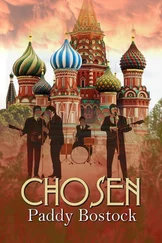
William Collins
An imprint of HarperCollins Publishers
1 London Bridge Street
London SE1 9GF
WilliamCollinsBooks.com
This eBook first published in Great Britain by William Collins in 2018
Copyright © Paddy and Jane Ashdown Partnership 2018
The author asserts the moral right to be identified as the author of this work
A catalogue record for this book is available from the British Library
All rights reserved under International and Pan-American Copyright Conventions. By payment of the required fees, you have been granted the non-exclusive, non-transferable right to access and read the text of this e-book on screen. No part of this text may be reproduced, transmitted, down-loaded, decompiled, reverse engineered, or stored in or introduced into any information storage and retrieval system, in any form or by any means, whether electronic or mechanical, now known or hereinafter invented, without the express written permission of HarperCollins.
Source ISBN: 9780008257071
Ebook Edition © October 2018 ISBN: 9780008257057
Version: 2019-08-03
To Hans Oster, preux chevalier
Cover
Title Page
Copyright
Dedication
List of Illustrations
Epigraphs
Introduction
Main Dramatis Personae
Map: Berlin’s administrative district
Map: Germany, 1944
Prologue
1 Carl Goerdeler
2 Ludwig Beck
3 Wilhelm Canaris
4 Madeleine and Paul
5 Germany in the Shadow of War
6 The Emissaries
7 ‘All Our Lovely Plans’
8 March Madness
9 The March to War
10 Switzerland
11 Halina
12 Sitzkrieg
13 Warnings and Premonitions
14 Felix and Sealion
15 The Red Three
16 Belgrade and Barbarossa
17 General Winter
18 The Great God of Prague
19 Rebound
20 Codes and Contacts
21 Of Spies and Spy Chiefs
22 Mistake, Misjudgement, Misfire
23 The Worm Turns
24 The End of Dora
25 Enter Stauffenberg
26 Valkyrie and Tehran
27 Disappointment, Disruption, Desperation
28 The Tip of the Spear
29 Thursday, 20 July 1944
30 Calvary
31 Epilogue
32 After Lives
Afterword: Cock-up or Conspiracy?
Reader’s Note
Picture Section
Acknowledgements
Bibliography
Notes
Index
Also by Paddy Ashdown
About the Author
About the Publisher
Carl Goerdeler. (Papers of Arthur Primrose Young, Modern Records Centre, University of Warwick: MSS.242/X/GO/3)
Wilhelm Canaris. (Popperfoto/Getty Images)
Ludwig Beck. (Ullstein bild Dtl: Getty Images)
Henning von Tresckow. (Ullstein bild Dtl: Getty Images)
Hans Oster. (AfZ: NL Hans Bernd Gisevius/6.7)
Erwin von Lahousen. (ÖNB)
Hans Bernd Gisevius. (SZ Photo/Süddeutsche Zeitung)
Robert Vansittart. (Scherl/Süddeutsche Zeitung Photo)
Stewart Menzies and his wife Pamela. (Evening Standard/Stringer/Hulton Archive: Getty Images)
Neville Chamberlain on his return from Munich, September 1938. (Keystone/Stringer/Hulton Archive: Getty Images)
Paul Thümmel, Agent A54. (UtCon Collection/Alamy Stock Photo)
Madeleine Bihet-Richou.
Ursula Hamburger (‘Sonja’).
Ursula with her children, Nina, Micha and Peter Beurton. (Courtesy of Michael Hamburger and Peter Beurton)
Leon ‘Len’ Beurton. (Courtesy of Peter Beurton)
Halina Szymańska. (Courtesy of Marysia Akehurst)
Alexander Foote. (CRIA/Jay Robert Nash Collection)
Rachel Duebendorfer. (The National Archives, ref. KV2/1619)
Allen Dulles. (NARA 306-PS-59-17740)
Rudolf Roessler. (CRIA/Jay Robert Nash Collection)
Sándor Radó with his Geopress staff.
Sándor and Helene Radó with their two sons, June 1941. (Bundesarchiv, Berlin-Lichterfelde)
‘De Favoriet’, the Jelineks’ shop in The Hague, c. 1939.
Bernhard Mayr von Baldegg, Alfred Rosenberg and Max Waibel.
The Wolfsschanze map room after Stauffenberg’s failed assassination attempt, 20 July 1944. (Universal History Archive/Universal Images Group: Getty Images)
Stauffenberg, Puttkamer, Bodenschatz, Hitler, Keitel, 15 July 1944. (Photo12/UIG via Getty Images)
Goerdeler on trial. (Keystone/Hulton Archive: Getty Images)
The Tirpitzufer, c.1939.
‘La Taupinière’, c. 1937.
Alexander Foote’s flat in Lausanne.
Halina Szymańska’s fake French passport.
Foote’s radio.
Station Maude, Olga and Edmond Hamel’s radio.
Halina Szymańska’s false passport. (Courtesy of Marysia Akehurst)
The Radó family’s apartment building at 113, rue de Lausanne in Geneva. (Bundesarchiv, Berlin-Lichterfelde)
The Hamels’ radio shop in the Geneva suburb of Carouge, c.1939. (Bundesarchiv, Berlin-Lichterfelde)
Defenceless under the night
Our world in stupor lies;
Yet, dotted everywhere,
Ironic points of light
Flash out wherever the just
Exchange their messages:
May I, composed like them
Of Eros and of dust,
Beleaguered by the same
Negation and despair,
Show an affirming flame.
From W.H. Auden, ‘September 1, 1939’
‘The only salvation for the honest man is the conviction that the wicked are prepared for any evil … It is worse than blindness to trust a man who has hell in his heart and chaos in his head. If nothing awaits you but disaster and suffering, at least make the choice that is noble and honourable and that will provide some consolation and comfort if things turn out poorly.’
Baron vom Stein, urging Friedrich Wilhelm III to oppose Napoleon in 1808
This book is about those at the very top of Hitler’s Germany who tried to prevent the Second World War, made repeated attempts to kill him, did all they could to ensure his defeat, worked for an early peace with the Western Allies, and ultimately died terribly for their cause.
Most of my books have been about individual events, or people. The canvas of this one, by contrast, encompasses every sector of German society during the war; international statesmanship – or lack of it – in capitals from Berlin, to London, to Washington, to Moscow; battles fought from the shores of the Volga to the shadow of the Pyrenees; and spy rings plying their trade in Geneva, Zürich, Paris, Amsterdam, Istanbul and beyond.
Now that I have written it, I am a little surprised to find that a work I thought would tell the history of the Second World War through different eyes turns out also to be a story on the subject to which I return again and again: how human beings behave when we are faced with the challenges of war – and especially how, when confronted by great evil and personal jeopardy, we decide between submission and resistance: between loyalty and betrayal.
Is it ever possible to be both traitor and patriot? Is it treachery to betray your state if to do otherwise is to betray your humanity? Even if treachery changes nothing, must you still risk being a traitor in the face of great evil, if that is the only way to lighten the guilt that will fall on your children and your future countrymen? How do people make these choices? How do they behave after they have made them?
Читать дальше













